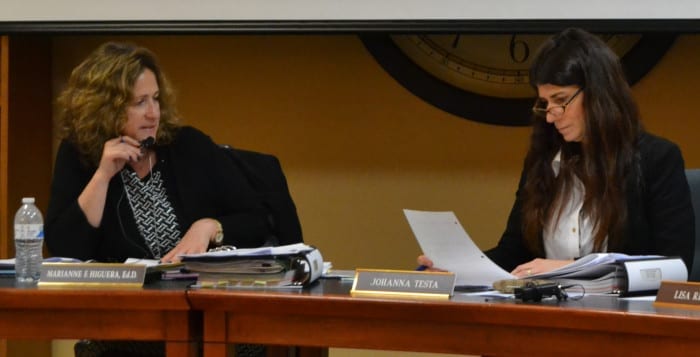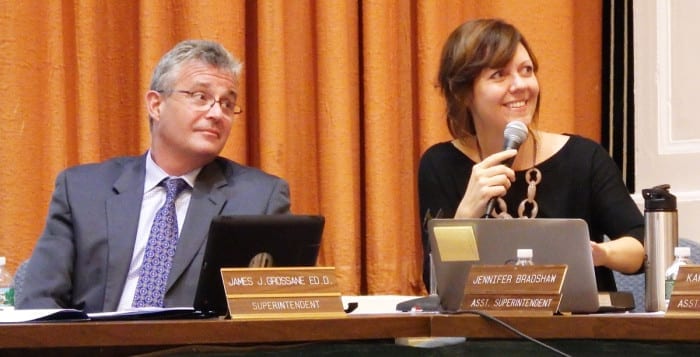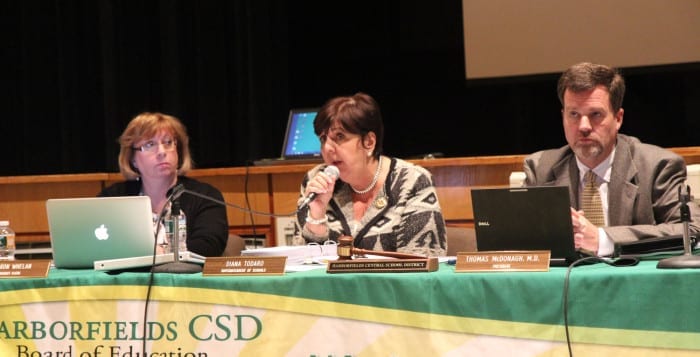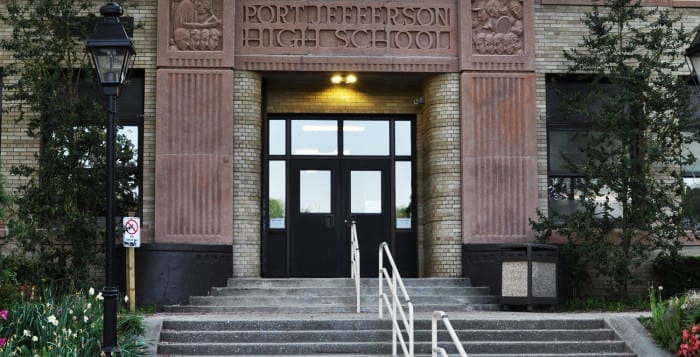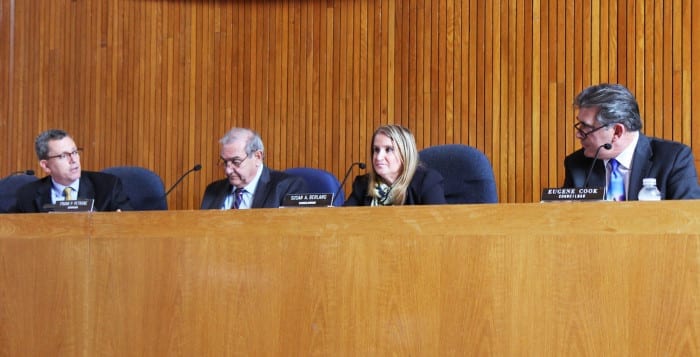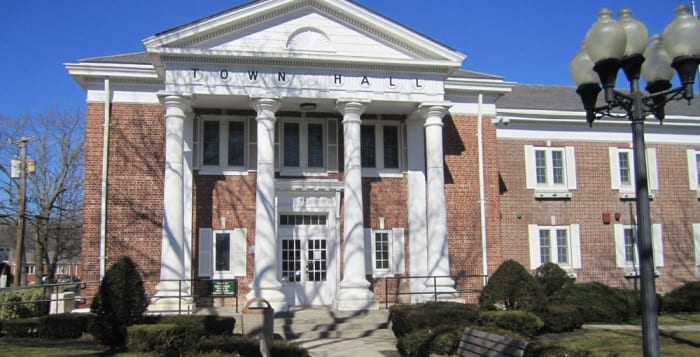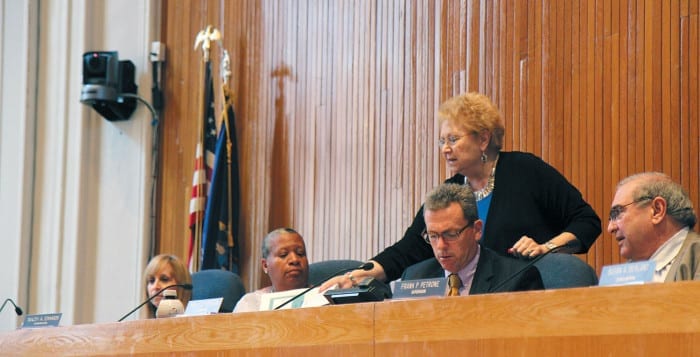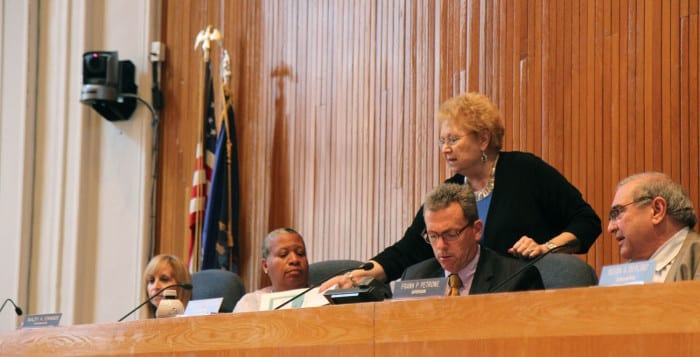Northport-East Northport school officials are crafting a budget for 2016-17 that would maintain all programs from the current year.
Superintendent Robert Banzer gave an update on the $160 million budget at the board meeting Thursday night, explaining the reason for the $1.8 million increase over the current year’s spending plan.
The rising costs are due mostly to staff changes and inflation, not new additions or programs, Banzer said, calling the budget “essentially” a rollover. But the district is expecting eight teachers to retire at the end of this year, and he expects that will save Northport money moving forward because new hires replacing the staffers will receive lower salaries.
The state-mandated cap on how much Northport can increase its tax levy is only 0.55 percent this budget season, according to Banzer, so non-tax revenues such as reserves and state aid will fund a majority of the budget increase.
Northport’s projection of how much state aid it will get next year, $13.9 million, would not cover that deficit. In fact, the district is expecting a 0.39 percent decrease in overall state aid, because the current year’s total had included funding to implement a full-day kindergarten program — funding that will not be repeated in 2016-17.
And it’s unclear how much the state will restore to the Gap Elimination Adjustment, a deduction it began taking out of all school districts’ aid a few years ago to help close its own budget deficit.
“There has been a lot of discussion that there will be full restoration of the Gap Elimination Adjustment, which for us would be an additional $840,000,” Banzer said at the meeting. “We’re anticipating that by the end of the month, we will have a budget where we know what [the GEA restoration amount] will be.”
Banzer added that the district would hammer out the finer details of its revenue streams “as the picture becomes clearer and we have more information from the state.”
Trustee Regina Pisacani asked the superintendent if any suggestions the Athletic Facilities Citizens Advisory Committee — a group she spearheaded — gave in December are being considered for inclusion in the 2016-17 budget. Proposals for capital projects ranged from turf fields to updated lockers.
“I can’t help but think about the Athletic Facilities Citizens Advisory Committee, and the recommendations that they just made,” she said at the meeting. “Were those things looked at and recommended for this budget?”
Banzer said the projects would all be discussed, and that savings realized from the upcoming retirees’ salaries could possibly be used toward projects like those.
The district will have further budget meetings on the next few Thursdays in March, including March 10, 17 and 31, the last of which will provide an opportunity for public input.


